Piling pipe is a structural building material used to support and stabilize a building's foundation. When the soil below a building is loosely packed, it may not offer enough strength to keep the building stable over time. A pipe piling can be used to distribute the weight of the building deeper into the earth, where the soil is often more tightly packed. Pipe piles are also used to support exceptionally large or heavy buildings, where even standard soil cannot offer adequate support. Finally, a pipe piling may be required when the land area is too small to accommodate spread footers or foundations, forcing buildings to dig deeper to achieve sufficient ground stability.
Most forms of pipe piling consist of heavy-duty steel pipes, which are often galvanized with zinc to increase moisture and corrosion-resistance. When only a standard level of support is required, an open-ended pipe is often used. If additional support is required, these pipes may be capped with steel plates to form close-ended pilings.
Installers can then fill the pipe with concrete and rebar to add extra strength and stability.
Piles are driven into the ground using large machines known as pile drivers. These machines contain hydraulic systems which exert extremely high levels of force to drive the piles into the ground. By driving the piles directly into the soil without drilling holes first, the soil itself helps to support and stabilize the piles. As the pile is driven underground, the soil is displaced, which increases friction and pressure around the pile to hold it in place.
Engineers and installers determine the placement for each pipe pile based on the building loads at various locations. A very heavy load, such as a piece of industrial equipment, may need to sit directly over a pile to ensure adequate support. When building loads are evenly distributed, installers may use a concrete pile cap to support the building. This allows the pipe pilings to be equally spaced below the building, then connected together with the pile cap to act as a large foundation system.
Each pipe piling must be carefully chosen based on building forces, soil conditions and local building codes. A geotechnical engineer can test the soil to determine whether piles are needed. The structural engineer then determines the size and material needed for each pipe piling, as well as the required depth. When a single pipe is not long enough to reach this depth, piles may be joined together using butt welds or splicing sleeves.
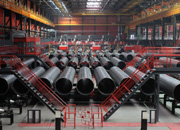 Threeway Steel is known as a professional supplier engaged in manufacturing and distributing a wide range of steel pipe, and our headquarter located the central part of China – Hunan and six associated factories throughout China.
Threeway Steel is known as a professional supplier engaged in manufacturing and distributing a wide range of steel pipe, and our headquarter located the central part of China – Hunan and six associated factories throughout China.
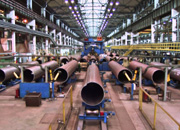 Threeway Steel is known as a professional supplier engaged in designing, manufacturing and distribution of a wide range of steel products with the headquarter located the central part of China – Hunan and six associated factories throughout China.
Threeway Steel is known as a professional supplier engaged in designing, manufacturing and distribution of a wide range of steel products with the headquarter located the central part of China – Hunan and six associated factories throughout China.
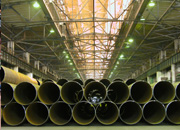 Threeway Steel is known as a professional supplier engaged in designing, manufacturing and distribution of a wide range of steel products with the headquarter located the central part of China – Hunan and six associated factories throughout China.
Threeway Steel is known as a professional supplier engaged in designing, manufacturing and distribution of a wide range of steel products with the headquarter located the central part of China – Hunan and six associated factories throughout China.
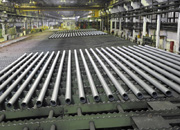 Threeway Steel is known as a professional supplier engaged in designing, manufacturing and distribution of a wide range of steel products with the headquarter located the central part of China – Hunan and six associated factories throughout China.
Threeway Steel is known as a professional supplier engaged in designing, manufacturing and distribution of a wide range of steel products with the headquarter located the central part of China – Hunan and six associated factories throughout China.
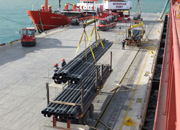 Threeway Steel is known as a professional supplier engaged in designing, manufacturing and distribution of a wide range of steel products with the headquarter located the central part of China – Hunan and six associated factories throughout China.
Threeway Steel is known as a professional supplier engaged in designing, manufacturing and distribution of a wide range of steel products with the headquarter located the central part of China – Hunan and six associated factories throughout China.

